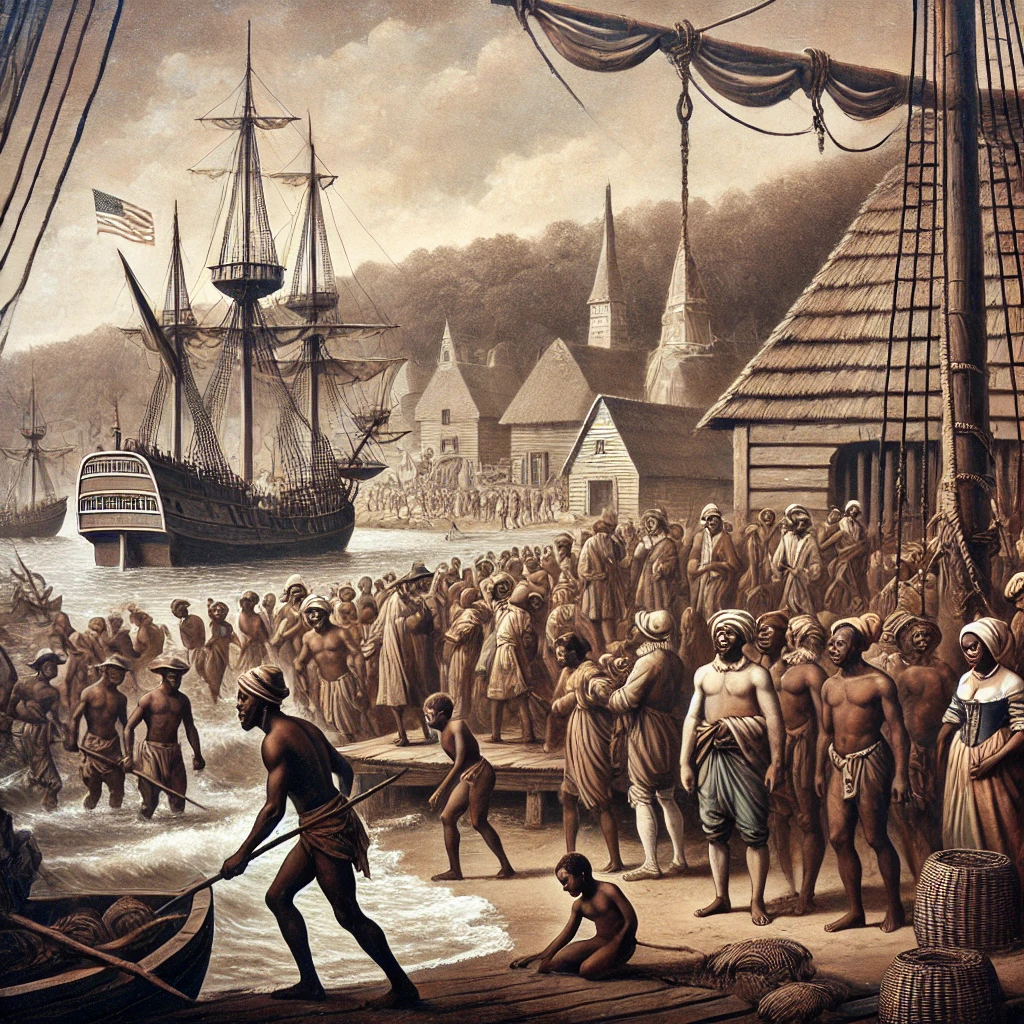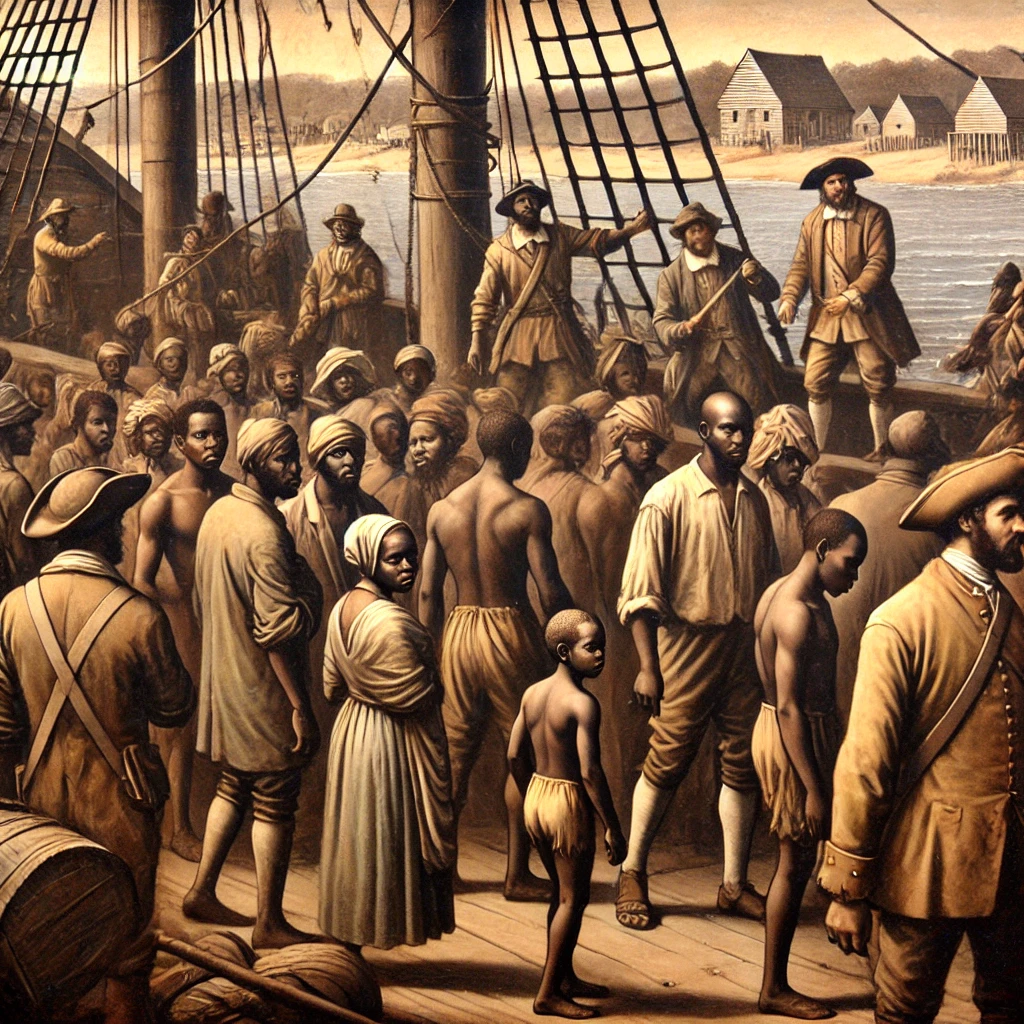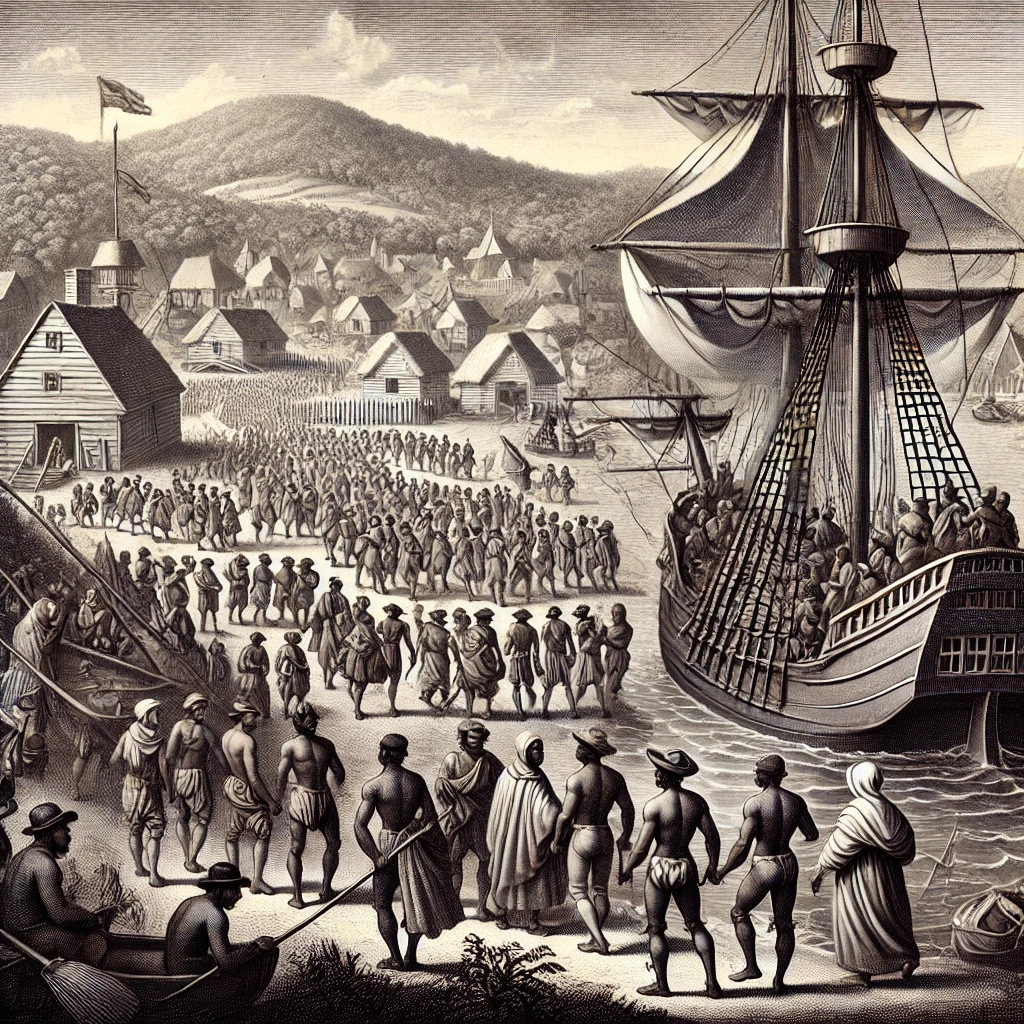On August 20, 1619, the first recorded arrival of enslaved Africans in English North America occurred at Jamestown, Virginia. This event marked a significant and tragic milestone in American history. The Africans were brought to Jamestown by a Dutch ship, which had captured them from a Portuguese vessel engaged in the transatlantic slave trade. This arrival set the stage for the establishment of a system of racial slavery that would profoundly impact the history and development of the United States.
The enslaved Africans who arrived in Jamestown were initially traded for supplies, and their status as property rather than people was a crucial step in the development of institutionalized slavery in the colonies. The introduction of enslaved labor would become a cornerstone of the colonial economy, particularly in agriculture, as plantations relied heavily on enslaved people to cultivate crops like tobacco, which became a major export.

The Expansion of Slavery in the Colonies
The arrival of enslaved Africans in Jamestown was the beginning of a system that would expand throughout the American colonies. Over the next century, the practice of slavery became deeply entrenched in colonial society, with laws and systems evolving to support and regulate the institution. Slavery was integral to the economic and social structures of the colonies, particularly in the southern regions where large-scale agriculture required substantial labor forces.
The growth of the transatlantic slave trade facilitated the forced migration of millions of Africans to the Americas over the following centuries. This massive and brutal trade was driven by the demand for labor in the colonies and played a significant role in shaping the demographic and economic landscape of early America. Enslaved Africans were subjected to harsh conditions, exploitation, and dehumanization, which had lasting impacts on their lives and on the broader society.

The Legacy of Slavery and Its Ongoing Impact
The legacy of the arrival of enslaved Africans in Jamestown is profound and enduring. The establishment of slavery in North America led to centuries of racial inequality and injustice, shaping the socio-economic and cultural dynamics of the United States. The effects of this history are still evident today in ongoing issues related to racial discrimination, economic disparities, and social justice.
The history of slavery is a crucial component of American history and is essential to understanding the country’s development and its struggles with race and inequality. Commemoration of this history involves acknowledging the pain and suffering endured by enslaved people and recognizing the resilience and contributions of their descendants. It also calls for continued efforts to address the legacy of slavery and promote racial equity and justice.

On August 20, 1619, the arrival of the first enslaved Africans in Jamestown marked the beginning of a dark chapter in American history. This event set the stage for the establishment and expansion of slavery in North America, with lasting effects on the country’s social, economic, and political landscape. The legacy of this history remains a critical aspect of understanding America’s past and addressing its present challenges.
